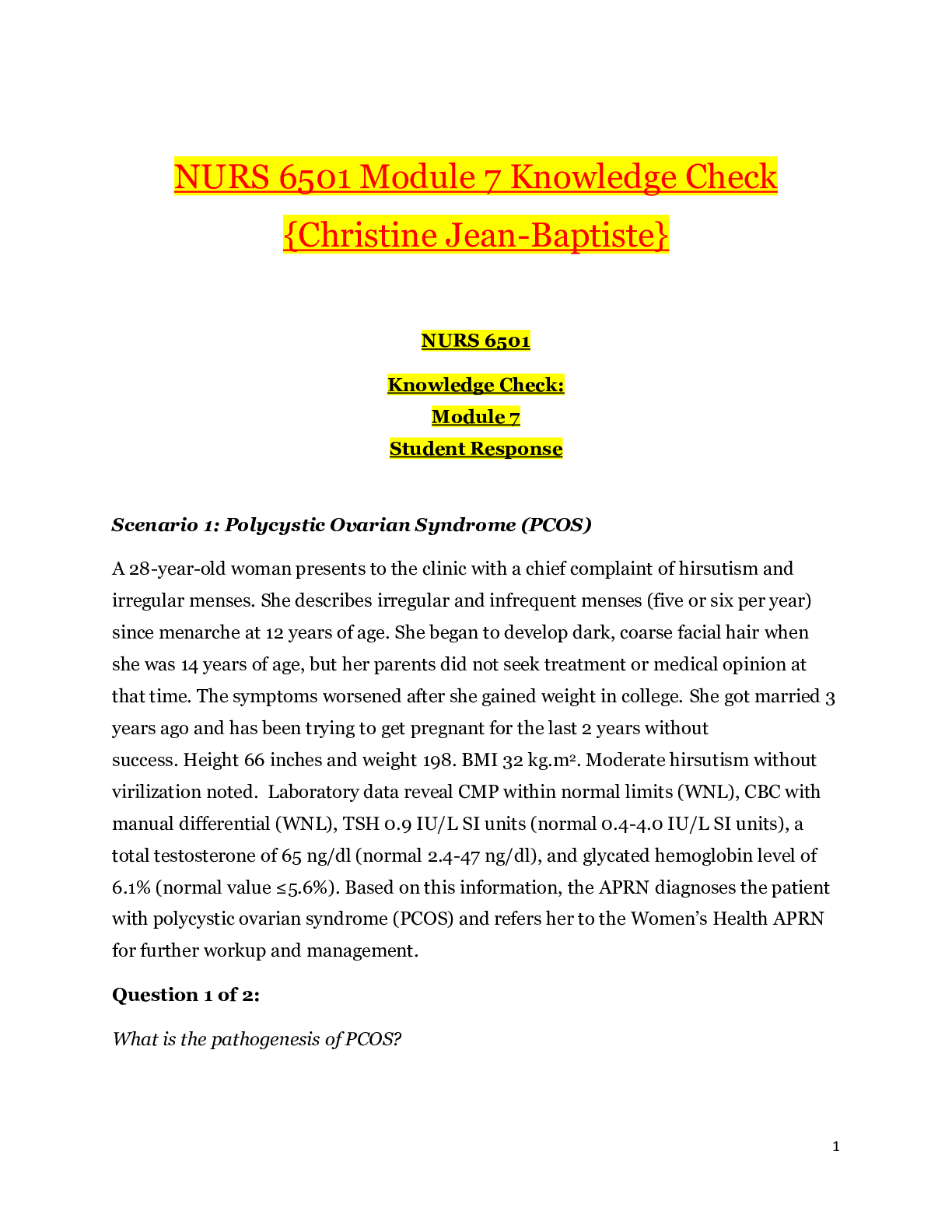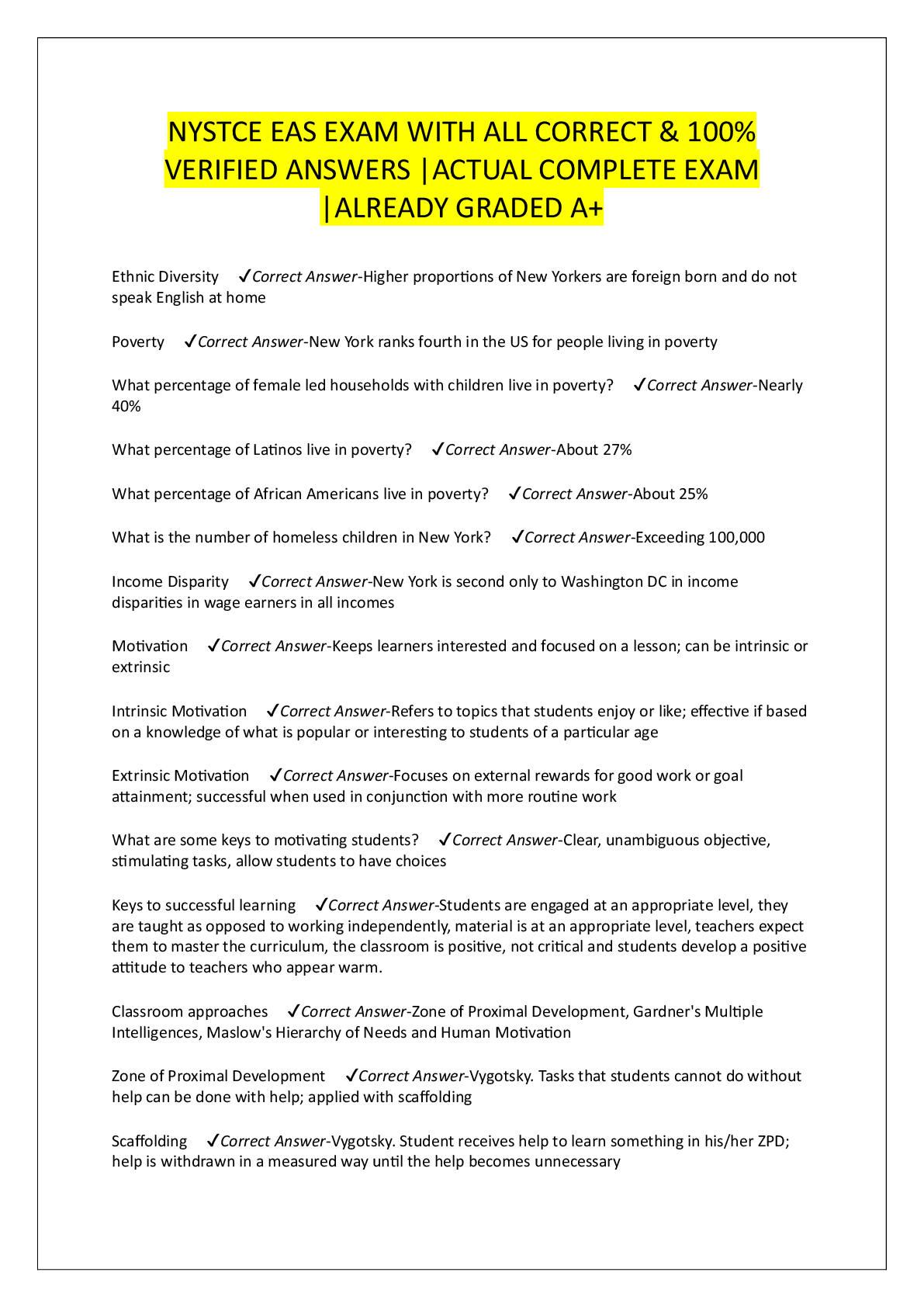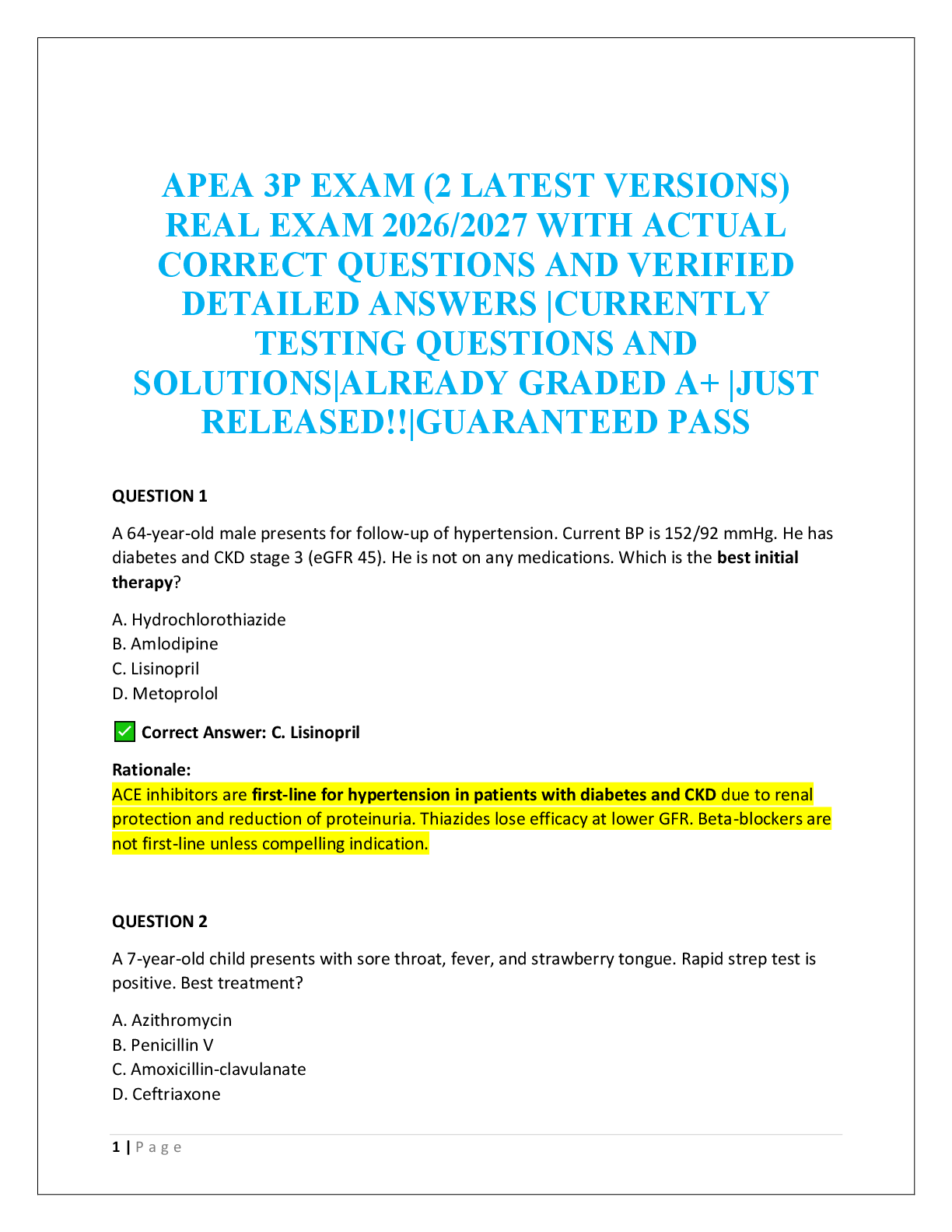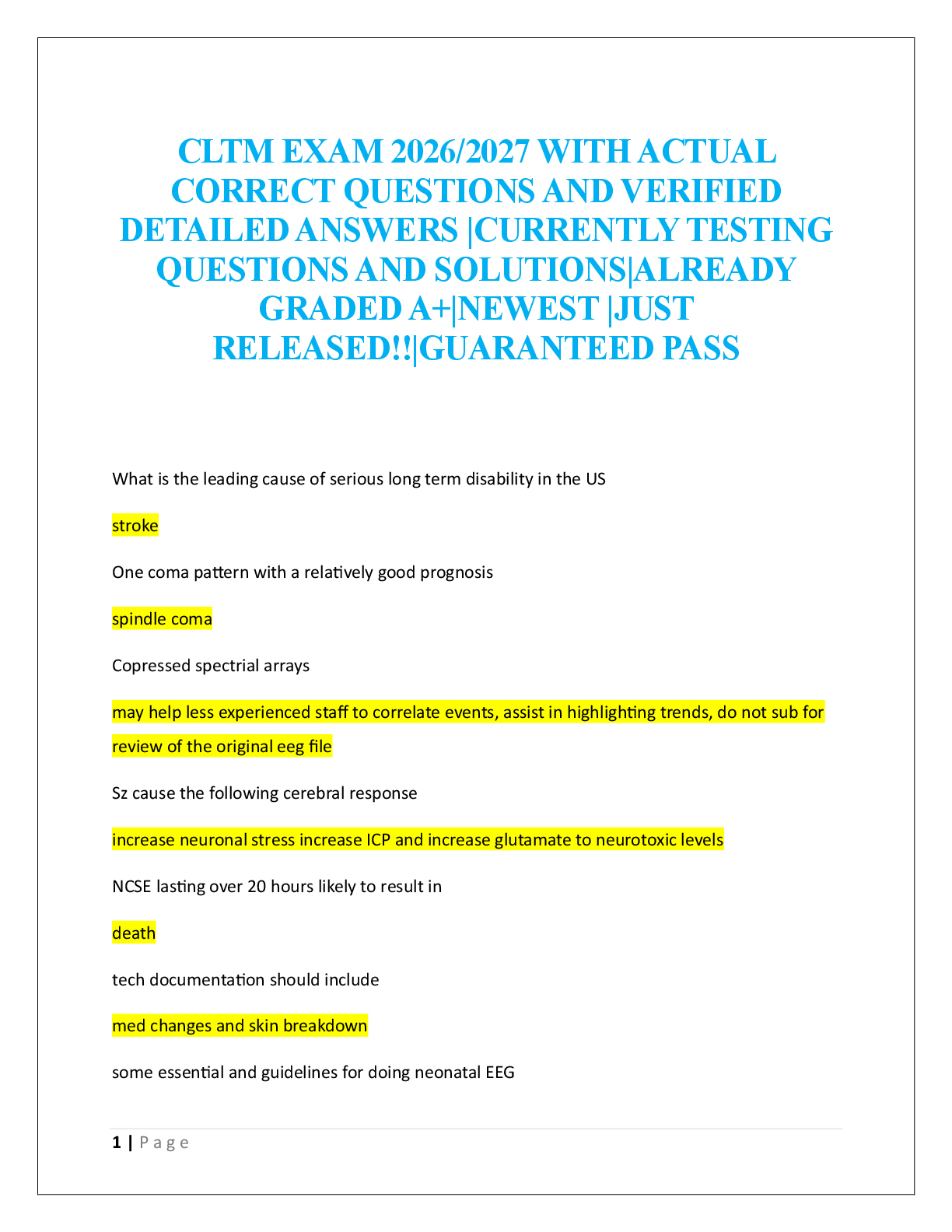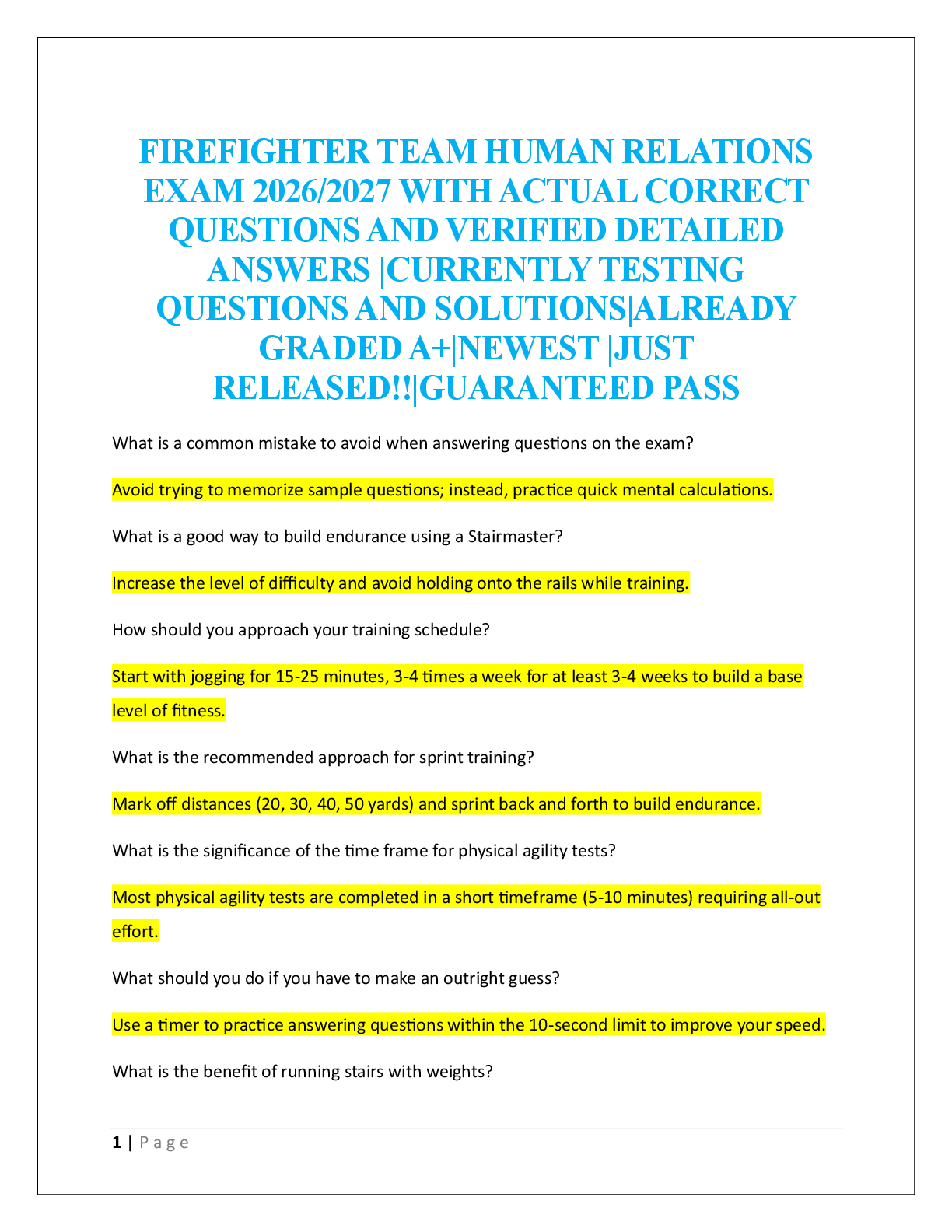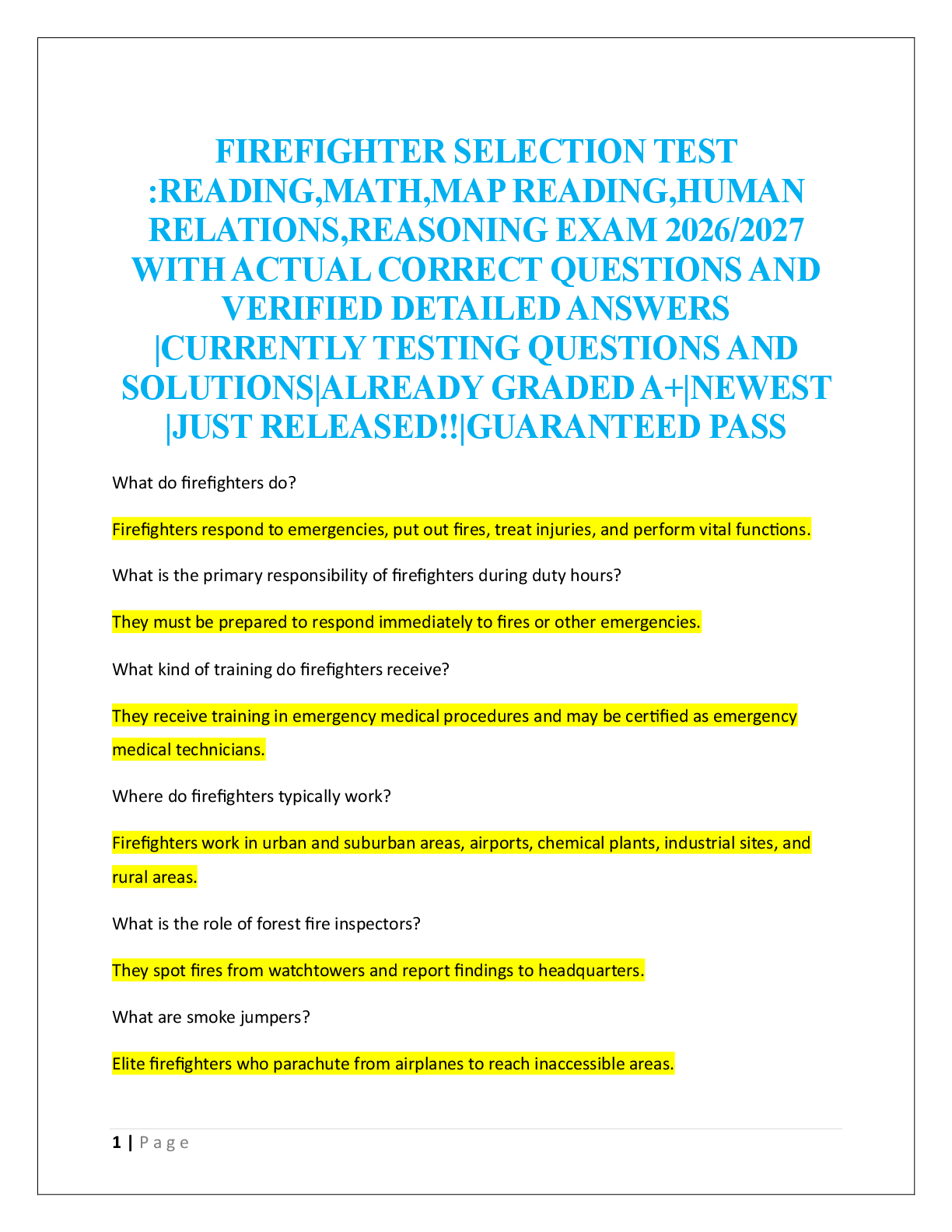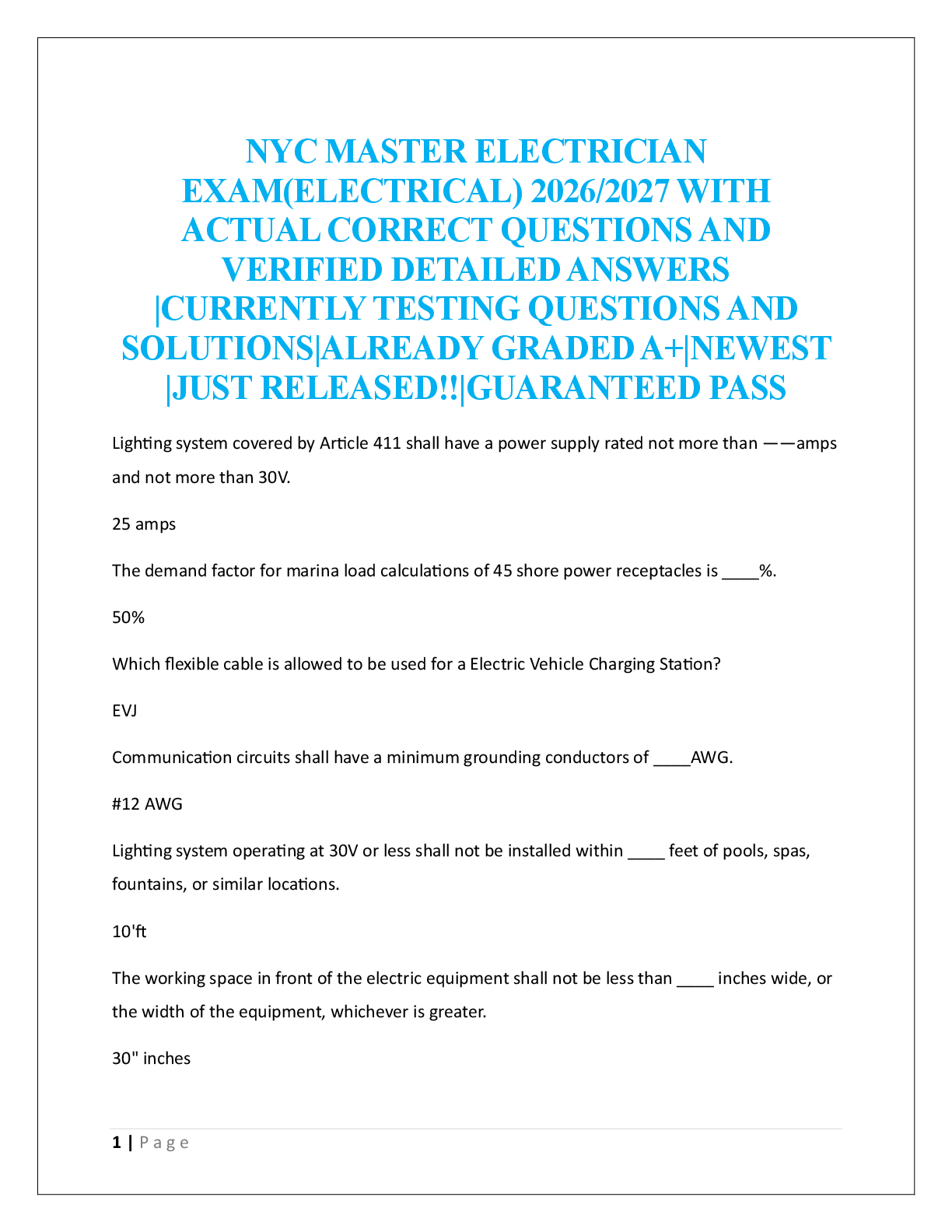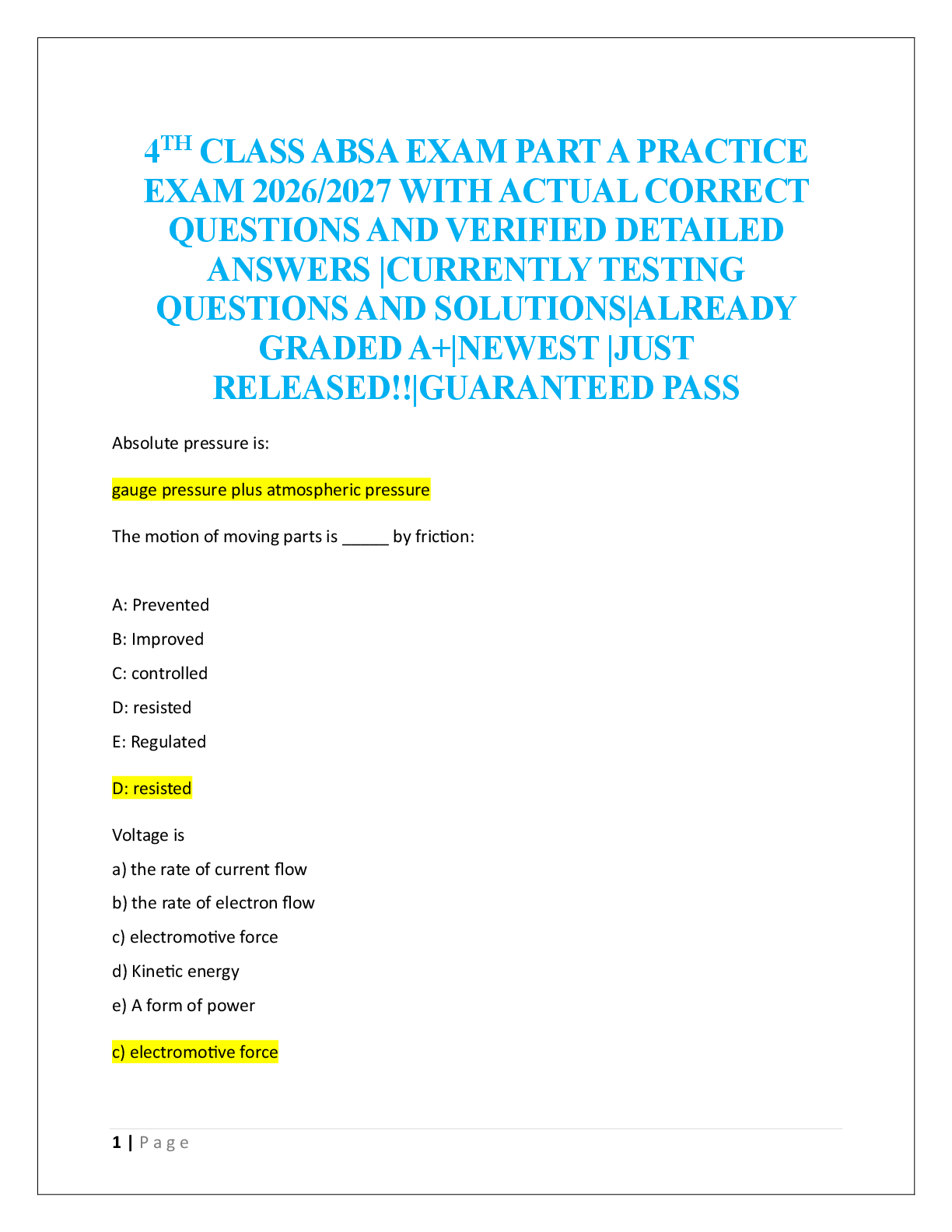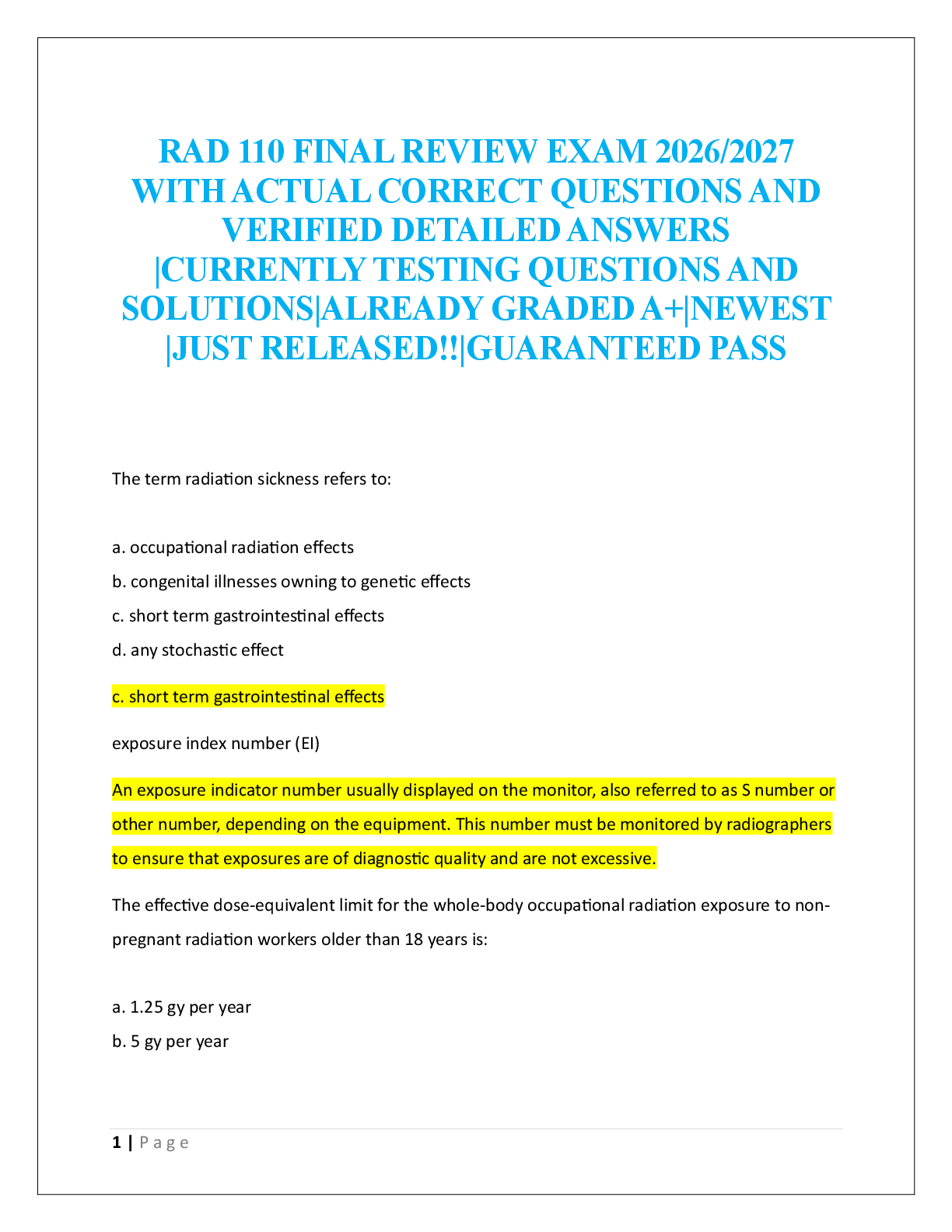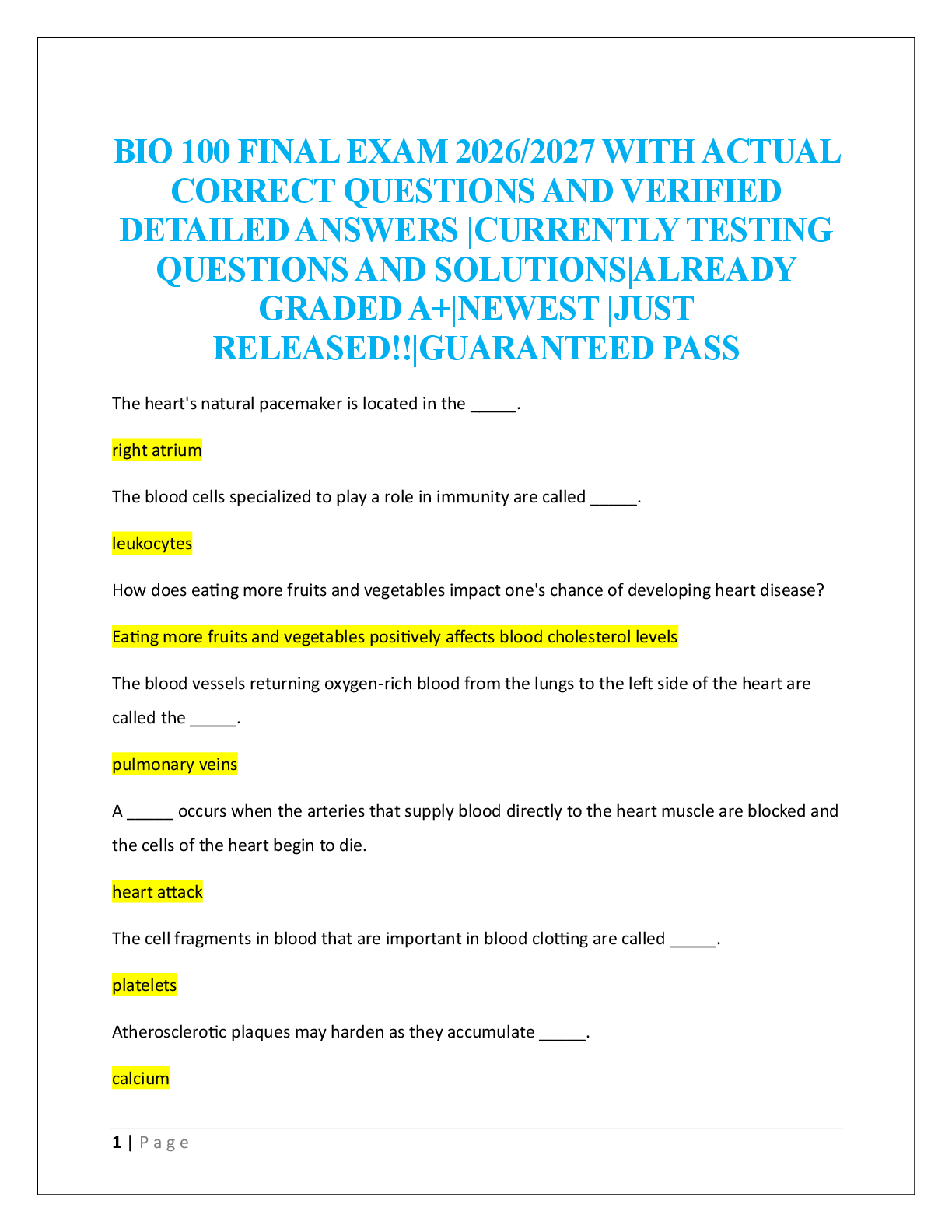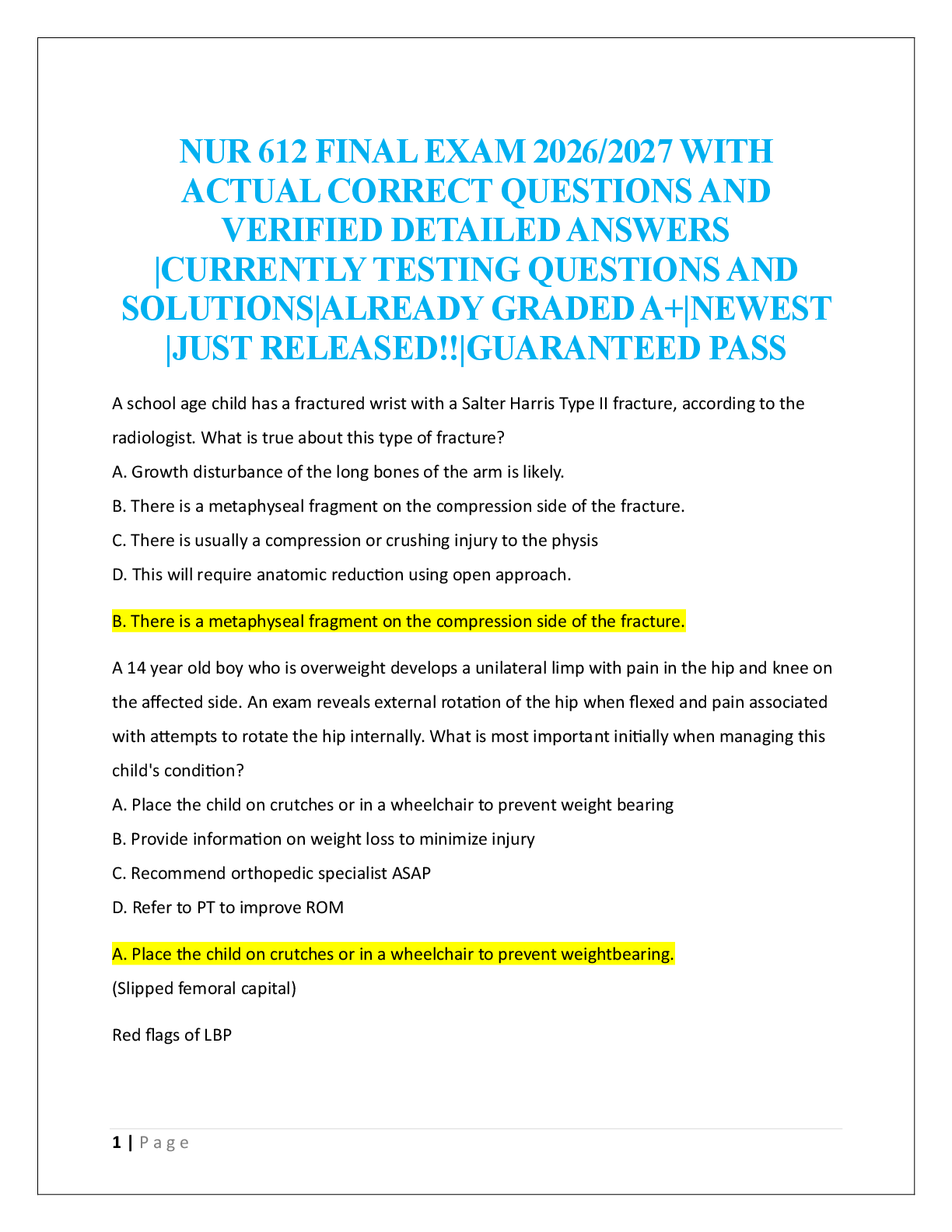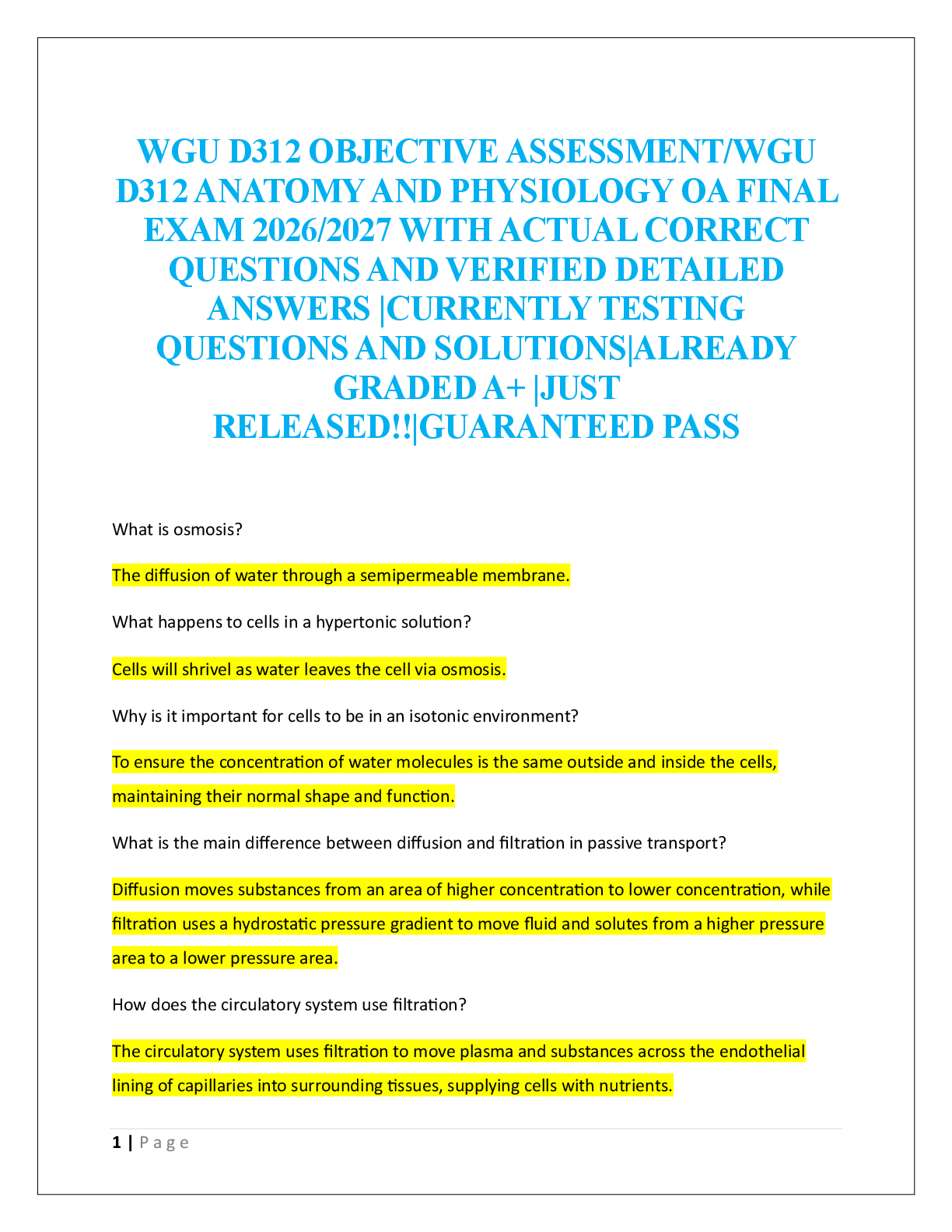*NURSING > EXAM > Christine Jean-Baptiste_Module 8 Knowledge Check_2020 | NURS 6501 Knowledge Check _Student Response (All)
Christine Jean-Baptiste_Module 8 Knowledge Check_2020 | NURS 6501 Knowledge Check _Student Response
Document Content and Description Below
NURS 6501 Module 8 Knowledge Check {Christine Jean-Baptiste NURS 6501 Christine Jean-Baptiste Knowledge Check: Module 8 Student Response This Knowledge Check reviews the topics in Module ... 8 and is formative in nature. It is worth 20 points where each question is worth 1 point. You are required to submit a sufficient response of at least 2-4 sentences in length for each question. Scenario 1: Acute Lymphoblastic Leukemia (ALL) A ten-year-old boy is brought to clinic by his mother who states that the boy has been listless and not eating. She also notes that he has been easily bruising without trauma as he says he is too tired to go out and play. He says his bones hurt sometimes. Mother states the child has had intermittent fevers that respond to acetaminophen. Maternal history negative for pre, intra, or post-partum problems. Child’s past medical history negative and he easily reached developmental milestones. Physical exam reveals a thin, very pale child who has bruises on his arms and legs in no particular pattern. The APRN orders complete blood count (CBC), and complete metabolic profile (CMP). The CBC revealed Hemoglobin of 6.9/dl, hematocrit of 19%, and platelet count of 80,000/mm3. The CMP demonstrated a blood urea nitrogen (BUN) of 34m g/dl and creatinine of 2.9 mg/dl. The APRN recognizes that the patient appears to have acute leukemia and renal failure and immediately refers the patient to the Emergency Room where a pediatric hematologist has been consulted and is waiting for the boy and his mother. The diagnosis of acute lymphoblastic leukemia (ALL) was made after extensive testing. Question 1 of 2: What is ALL? Acute lymphoblastic leukemia (ALL) is a malignant clonal disease of the bone marrow in which early lymphoid precursors proliferate and replace the normal hematopoietic cells of the marrow. ALL is the most common type of cancer and leukemia in children in the United States. The malignant cells of acute lymphoblastic leukemia (ALL) are lymphoid precursor cells (ie, lymphoblasts) that are arrested in an early stage of development. This arrest is caused by an abnormal expression of genes, often as a result of chromosomal translocations or abnormalities of chromosome number. These aberrant lymphoblasts proliferate, reducing the number of the normal marrow elements that produce other blood cell lines (red blood cells, platelets, and neutrophils). Consequently, anemia, thrombocytopenia, and neutropenia occur, although typically to a lesser degree than is seen in acute myeloid leukemia. Lymphoblasts can also infiltrate outside the marrow, particularly in the liver, spleen, and lymph nodes, resulting in enlargement of the latter organs. Question 2 of 2: How does renal failure occur in some patients with ALL? Renal failure occurs in some patients with ALL as a result of hyperuricemia. Uric levels rise as an end product of purine metabolism from cellular destruction. Because the major excretory pathway is through the kidneys, urates can precipitate in renal tubules or ureters and can lead to oliguria and acute renal failure. Scenario 2: Sickle Cell Disease (SCD) A 12-year-old female with known sickle cell disease (SCD) present to the Emergency Room in sickle cell crisis. The patient is crying with pain and states this is the third acute episode she has had in the last nine months. Both parents are present and appear very anxious and teary eyed. A diagnosis of acute sickle cell crisis was made. Appropriate therapeutic interventions were initiated by the APRN and the patient’s pain level decreased, and she was transferred to the pediatric intensive care unit (PICU) for observation and further management. Question 1 of 2: What is the pathophysiology of acute SCD crisis and why is pain the predominate feature of acute crises? The pathogenesis of sickling includes erythrocyte derangement, chronic hemolysis, microvascular occlusions, and tissue damage. [Show More]
Last updated: 3 years ago
Preview 1 out of 16 pages

Buy this document to get the full access instantly
Instant Download Access after purchase
Buy NowInstant download
We Accept:

Reviews( 0 )
$8.50
Can't find what you want? Try our AI powered Search
Document information
Connected school, study & course
About the document
Uploaded On
Jun 23, 2021
Number of pages
16
Written in
All
Additional information
This document has been written for:
Uploaded
Jun 23, 2021
Downloads
0
Views
162

.png)



